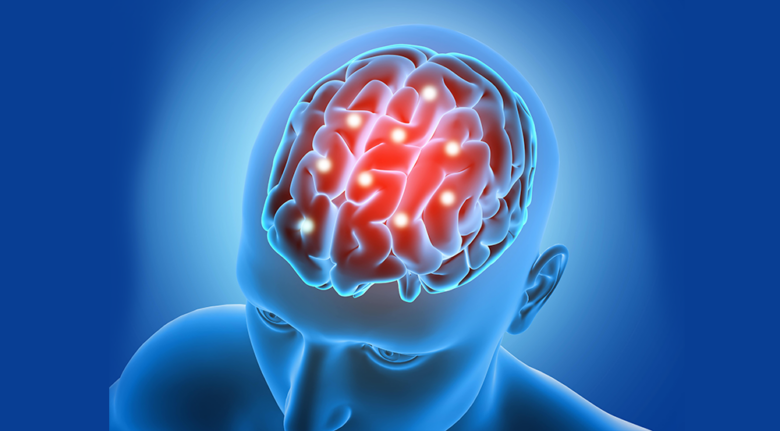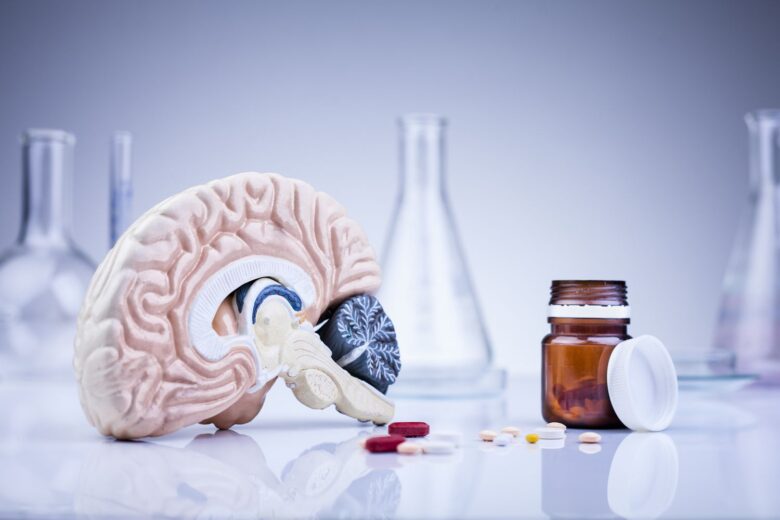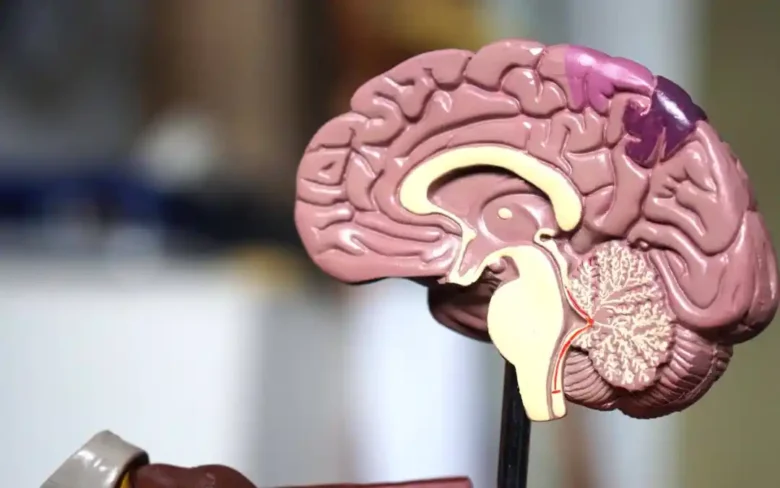A brain stroke, also known as a cerebrovascular accident (CVA), is a medical condition in which the blood supply to part of the brain is interrupted or reduced, depriving brain tissue of oxygen and nutrients. This can damage or kill brain cells and can lead to a variety of physical and cognitive impairments.
Brain stroke is one of the most common illnesses among adults over the age of 40. It is a very time-sensitive illness which means that once you or someone close to you is having a stroke, every second counts. On-the-spot decisions and prompt medical attention can save a life. For such occasions when a person is about to have a stroke, it is necessary to spot the symptoms. Symptoms of a brain stroke are:
- Sudden weakness or numbness on one side of the body, especially the face, arm, or leg.
- Droopy facial muscles
- Slur in speech or confusion
- Partial blindness in one or both eyes
- Sudden dizziness, trouble in walking, loss of balance
- Severe headache or sharp recurring pangs of pain
What to Do If a Brain Stroke Occurs?

Source: medium.com
Once a person is having a brain stroke, it is a race against time. Remember the word F.A.S.T:
F (Face): ask the patient to smile. If he is unable to smile or his facial muscles are drooping on one side then it is a stroke.
A (Arms): Ask the person to raise both their arms above their heads. See if both or one arm drifts downwards.
S (Speech): Ask the person to repeat a simple word or just their name. Notice if the speech is slurred.
T (Time): If you notice any of the above symptoms, call emergency medical services immediately.
Tips for Recovery
There are a number of things that stroke survivors can do to promote their recovery, including:
1. Take Nutritious Meals
It is very important to focus on a well-balanced nutritious diet. You need every bit of nutrition you can get, to empower your immune system. A well-balanced, healthy diet consisting of all major food groups in appropriate portions is very important to keep your nervous system healthy. Eat foods rich in omega-3 fatty acids such as seafood (tuna, salmon, mackerel, etc), vitamin D, and B12. Leafy green vegetables such as spinach, kale, and lettuce are also very beneficial. Eating a healthy diet is essential for overall health and well-being, but it is especially important for stroke survivors. A nutritious diet can help to improve energy levels, reduce inflammation, and boost the immune system. Stroke survivors should aim to eat plenty of fruits, vegetables, and whole grains, and limit processed foods, sugary drinks, and saturated and unhealthy fats.
2. Don’t skip medicines

Source: verywellhealth.com
The aftereffects of brain stroke are severe but can be managed and decreased by medicines and therapy. Take regular doses of prescribed medicines through CanadianPharmacyOnline.com and try not to skip a single dose. Make someone in charge of your medications or set a daily reminder if you live alone. Stroke survivors may be prescribed a variety of medications to help manage their condition, such as blood thinners to prevent future strokes, blood pressure medications to lower blood pressure, and cholesterol-lowering medications to reduce cholesterol levels. It is important to take all prescribed medications as directed, even if you are feeling well.
3. Diminish “Learned non-use”
When a brain stroke occurs, one side of the body is affected. If during recovery, that affected side or affected limb is not used or moved much, the brain wires itself to think that the body does not need that limb much and so the affected limb starts to become paralyzed. This phenomenon is called, “learned non-use”. During the recovery phase, keep the movement in your affected limbs to avoid this.
4. Try all rehabilitation methods
There are many rehabilitation methods for stroke patients to recover such as therapy, mirror therapy, gait training, and electrical stimulation. Try to get at least two sessions of all these methods and choose the one you feel most comfortable doing and which is yielding efficient results.
Rehabilitation is essential for helping stroke survivors to regain lost function and skills. Rehabilitation programs typically involve a combination of physical therapy, occupational therapy, and speech therapy. Physical therapy can help to improve strength, balance, and coordination. Occupational therapy can help to improve activities of daily living, such as dressing, bathing, and eating. Speech therapy can help to improve communication skills.
5. Managing stress and fatigue
Stress and fatigue can make it difficult to recover from a stroke. It is important to find ways to manage stress and fatigue, such as getting regular exercise, getting enough sleep, and practicing relaxation techniques.
Additional Tips

Source: thelecc.com
In addition to the tips listed above, there are a number of other things that stroke survivors can do to promote their recovery, such as:
- Staying positive: Having a positive attitude can make a big difference in the recovery process. Stroke survivors should focus on their accomplishments and set realistic goals for themselves.
- Building a support system: Having a strong support system of family and friends is important for stroke survivors. Support can help to provide emotional support, practical assistance, and motivation.
- Educating yourself about stroke: Learning more about stroke can help stroke survivors understand their condition and make informed decisions about their care. Stroke survivors can find information about stroke from their healthcare providers, support groups, and online resources.
- Try different types of exercise: Exercise is important for everyone, but it is especially important for stroke survivors. Exercise can help to improve strength, balance, coordination, and cardiovascular health. Stroke survivors should talk to their doctor about what type of exercise is safe and appropriate for them.
- Find hobbies and activities that you enjoy: Engaging in hobbies and activities can help to improve mood, reduce stress, and promote social interaction. Stroke survivors should choose activities that are appropriate for their abilities and interests.
Don’t give up. Recovery from a stroke takes time and effort. It is important to be patient and persistent. Stroke survivors should celebrate their accomplishments and keep working towards their goals.
Conclusion
Recovery from a stroke is a challenging process, but it is possible. By following the tips above, stroke survivors can improve their chances of making a full recovery. If you or someone you know has had a stroke, please know that you are not alone. There are many resources available to help you on your journey to recovery.
